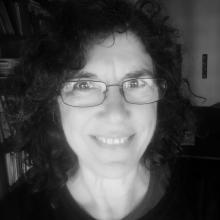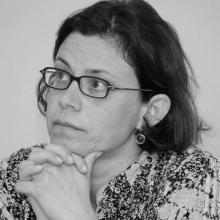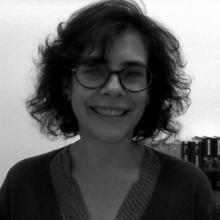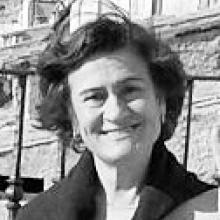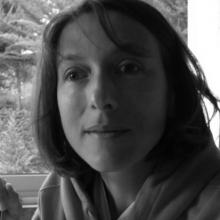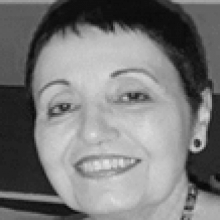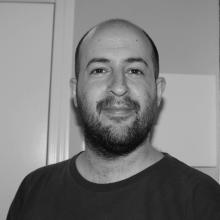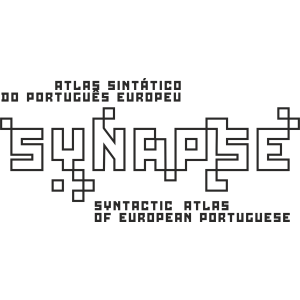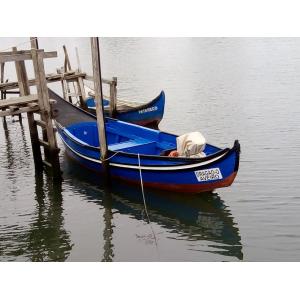Dialectology and Diachrony
The core object of study of the Dialectology and Diachrony group (D&D) is language variation, across centuries and covering several geographical areas. The group’s descriptive and theoretical studies, which are regularly published in prestigious journals and volumes, are accompanied by the construction of various digital resources from either historical documents or contemporary oral data in non-standard varieties of Portuguese or Portuguese-related languages. A substantial part of these oral data have been gathered in Portugal, both in the archipelagos of Madeira and the Azores, and in the mainland, where some of the varieties under study are spoken in different points of the border with Spain. Additionally, D&D studies Portuguese or Portuguese-related varieties that are, to a variable degree, the product of contact with other languages, which is the case of Caboverdean and Brazilian Portuguese. All these works assume a comparative perspective with other natural languages, from diverse periods and regions.
The standard varieties, however, are not left behind, since part of the group’s activities and outputs concerns (i) the intricate linkage between those and the non-standard varieties, and (ii) the development of new tools for the formal teaching of Portuguese.
This coverage of standard and non-standard varieties ensures a connection between theoretical research and the community at large (including productive collaborations with other Portuguese teaching entities, in Portugal and abroad), also guaranteed by the regular presence of various group members in open online seminars and conferences, and further highlighted by science communication endeavours, such as general audience publications and language oriented cultural events.
Membros
Integrated members with PhD
Integrated members without PhD
Colaboradores
Concluded
| Project | Date | Fin. |
|---|---|---|
| P.S. - P.S. Post Scriptum | - | |
| FLY - FLY - Forgotten Letters 1900-1974 | - | |
| WOChWEL - Word Order and Word Order Change in Western European Language | - | FCT
|
| Linguistic Cartography of Galicia and Portugal | - | |
| DUPLEX - DUPLEX - Doubles and Expletives in European Portuguese Dialect Syntax | - | FCT
|
| CARDS - CARDS - Unknown Letters | - | FCT
|
| VarV - VarV - Inflectional Variants of the Verb in Spoken Continental Portuguese | ||
| CORDIAL-SIN - CORDIAL-SIN - Syntax-oriented Corpus of Portuguese Dialects | - | FCT
|
| Border languages: Mirandese | ||
| Network European Dialect Syntax | ||
| TEDIPOR - Thesaurus of Dialectal Portuguese | ||
| Por toda a parte - Uma certa história da língua portuguesa | FCT
|
| Resources | Type |
|---|---|
| A Sound Map for Portuguese Dialects - MADISON | Atlas |
| CORDIAL-SIN - Syntax-oriented Corpus of Portuguese Dialects - CORDIAL-SIN | Corpus |
| Forgotten Letters 1900-1974 - FLY | Corpus |
| Glossário dos dialetos portugueses com informação sintática - GloDiP | Database |
| Language Unity and Diversity: Variation in Caboverdean and beyond - LUDViC | Corpus |
| Linguistic and Ethnographic Atlas of Azores - ALEAç | Atlas |
| Mobilidade Ascendente Entre As Minorias - MAEAM | Corpus |
| Post Scriptum - P.S. | Corpus |
| Revista Lusitana | Eletronic Edition |
| Revista Lusitana - Anthroponyms Index | Eletronic Edition |
| Revista Lusitana - Etymology index | Eletronic Edition |
| Revista Lusitana - Subject index | Eletronic Edition |
| Revista Lusitana - Toponyms index | Eletronic Edition |
| Revista Lusitana - Word Index | Eletronic Edition |
| SynAPse: The Syntactic Atlas of European Portuguese | Atlas |
| Tagged and Parsed Old Portuguese Texts - WOChWEL's POS | Corpus |
| Thesaurus of Dialectal Portuguese - TEDIPOR | Lexicon |
| Unknown Letters - CARDS | Corpus |
. (2016). “Açores e Ilha de Santa Catarina: 8000 quilômetros e 260 anos depois. Cascavel-Pr: Edunioeste; Londrina: Eduel,, Estudos geossociolinguísticos brasileiros e europeus: uma homenagem a Michel Contini, 11. |
. (2016). Vocalismo acentuado do Noroeste português - descrição acústica, variação dialectal e representação fonológica. Revue Romane, 51, n. 1, 1-35. http://doi.org/10-1075/rro.51.1.01bri |
. (2020). Nasalização regressiva heterossilábica (NRH) da vogal /a/ acentuada em PE. Revista Da Associação Portuguesa De Linguística, (7), 295-317. http://doi.org/10.26334/2183-9077/rapln7ano2020a18 |
. (2018). A Percepção das interrogativas globais entre variedades do Português do Brasil. Filologia E Linguística Portuguesa, 20(Especial), 11-25. http://doi.org/10.11606/issn.2176-9419.v20iespecialp11-25 |
. (1985). O Método e os Resultados do Português . Jornal De Letras, Artes E Ideias, (134). (Original work published Janeiro 1985) |
. (2023). Variação em construções possessivas pré-nominais do português: um estudo sobre os usos de falantes do Funchal (Ilha da Madeira, Portugal). Revista Reflexos, (6). Retrieved from https://revues.univ-tlse2.fr:443/reflexos/index.php?id=826.6 |
. (2019). A variação entre ter e haver em construções existenciais numa variedade insular do PE (Funchal). Carrilho, Ernestina, Martins, Ana Maria, Pereira, Sandra e Silvestre, João Paulo (orgs.), Estudos Linguísticos e Filológicos Oferecidos a Ivo Castro. Lisboa: Centro de Linguística da Universidade de Lisboa. |
. (2016). Manual de Edición en PS. Retrieved from http://ps.clul.ul.pt/files/Manual\_Mod\_Pos\_Sin.pdf |
. (2016). Manual de edición y anotación en TEITOK de los materiales de PS. POST SCRIPTUM: edición modernizada; anotación morfosintáctica; anotación sintáctica. Retrieved from http://ps.clul.ul.pt/files/Manual\_Mod\_Pos\_Sin.pdf |
. (182AD). Notícia sobre os resultados do Português Fundamental. Boletim Da Sociedade De Língua Portuguesa, pp. 11-15. Lisboa. |
. (2013). Relatório do Núcleo de Investigação em Fonética Forense (NIFF) - 2013 (p. 5 p.). |
. (2016). Dialetologia. Retrieved from http://aprenderamadeira.net/dialetologia/ |

